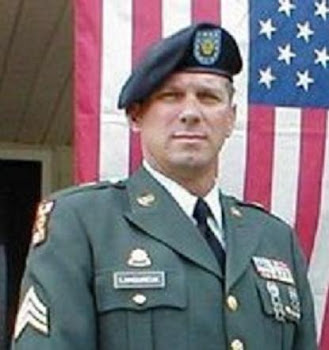By: Dr. Peter Breggin
Posted: May 15, 2010 03:14 PM
The cost of psychiatric care in the military has escalated, including a skyrocketing number of psychiatric admissions, according to a recent USA Today front-page story. These statistics unfortunately reflect a great deal of human suffering on the part of our military.
Does this mean that life in the military has become tougher? Everyone seems to agree that it has with the increased frequency and length of deployments. But that's not the whole story. I recently testified before the Veterans Affairs Committee of the US House of Representatives about the increased rates of suicide in the military and pointed out that it probably is caused in part by the increased rate of prescribing psychiatric drugs, especially antidepressants which are scientifically documented to increase suicidal behavior, especially in young men and women of military age. Can we attribute the increased rate of psychiatric hospitalization in part to the same cause--the increased prescription of psychiatric drugs, especially antidepressants?
In Medication Madness (2008) I tell more than 50 clinical stories about patients driven to suicide, violence and crime by psychiatric drugs. In Brain-Disabling Treatments in Psychiatry, Second Edition (2008) I examine numerous scientific reports documenting high rates of adverse drug effects. Studies have shown that manic episodes escalate in individuals who are treated with antidepressants, even in individuals with no prior tendency to become manic. Rates for developing manic symptoms fall in the range of 5%-17% of patients given antidepressants. That is a huge adverse reaction rate! If the patients have a previous history of manic-like symptoms, then up to one-quarter or one-third may be driven once again into a manic state shortly after starting antidepressants. One report found that more than 8% of psychiatric admissions could be attributed to antidepressant-induced mania. Suicidal behavior also rises in frequency after the prescription of antidepressants in all age groups. The energy and loss of self control induced by drug induced mania can easily fuel suicidal and violent behavior.
And this data is limited to antidepressants alone! Up to one-third or more of psychiatric hospital admissions are probably caused by adverse drug reactions to the whole range of psychiatric meds.
On Saturday May 1, 2010 I gave a two-hour presentation at the 18th Annual International Military & Civilian Stress Conference in Los Angeles directed by Bart Billings, Ph.D. My talk focused on the hazards of prescribing psychiatric drugs, especially antidepressants, to active duty military personnel. Many soldiers during and after their deployment suffer from symptoms of Post Traumatic Stress Disorder. It was gratifying to learn that many military healthcare providers realize that PTSD is actually the normal human reaction of soldiers who have been exposed to combat.
Many symptoms of PTSD involved a state of hyper-arousal with anxiety, insomnia, irritability, anger, and emotional instability. The antidepressant drugs frequently cause a very similar spectrum of adverse effects, compounding and worsening the soldiers' natural reactions to trauma. I urged the military to continue the development of more human service oriented approaches to soldiers in distress--a theme that was repeated by others throughout the conference.
I was enormously impressed with the humanity and skill of many military caregivers who often appreciate the dangers and limitations of medication, and the need for empathic, supportive help. These professionals included psychologists, social workers, nurses, chaplins and even one military psychiatrist who realized that psychosocial approaches are more effective than drugs. Several active duty and retired military officers declared their interest in attending and presenting at our Empathic Therapy Conference in Syracuse, New York, on April 8-9, 2011.
Military nurses described to me their dismay on finding that every soldier in their rehab groups who returned from deployment for psychiatric treatment was being treated with three or more psychiatric drugs at the same time. The nurses knew that this was doing more harm than good but they were hamstrung by the prescribing psychiatrists who think that more is always better when it comes to psychiatric drugs.
Biological psychiatry, unlike medicine in general, tends to make people worse. In my clinical practice, I often remove patients from psychiatric drugs. The process can be hazardous, especially if the individual has been exposed for many months or years, and should be done carefully under experienced clinical supervision. But despite the difficulty involved in withdrawing some patients, in my clinical experience almost everyone does better off psychiatric drugs than on them, especially when they are offered empathic therapy by a caring and experienced professional.
Peter R. Breggin, MD is a psychiatrist in private practice in Ithaca, New York. He is the author of Medication Madness: The Role of Psychiatric Drugs in Cases of Violence, Suicide and Crime (2008).




No comments:
Post a Comment